The last British Dambuster on the raids, revisionism and giving up flying
Squadron Leader Jonny Johnson is the last British survivor of the legendary Dambusters raid of 1943. Jonathan Self was supposed to speak to him for Country Life, but he took his son along and didn't get a word in edgewise...

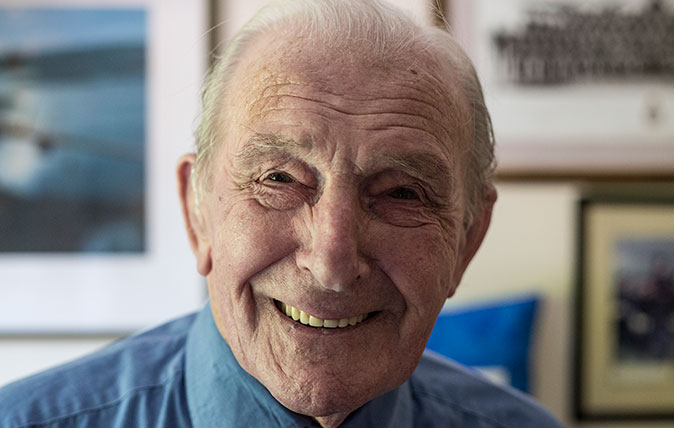
The last British survivor of Operation Chastise, the Dambusters raid of 1943, is my 12-year-old son Oliver’s hero.
His copy of Squadron Leader George ‘Johnny’ Johnson’s memoir, The Last British Dambuster, is so well thumbed that the pages are falling out. His bedside table can’t be seen for books such as Dambuster Crash Sites and The Dambuster Raid: A German View and one has to enter his bedroom with considerable care to avoid becoming entangled in his re-creation of the attacks, which includes nine Airfix models of Lancaster bombers suspended from the ceiling.
If asked why he’s so fascinated by the raid, his response is that it combined technological brilliance, outstanding bravery and extraordinary ingenuity.
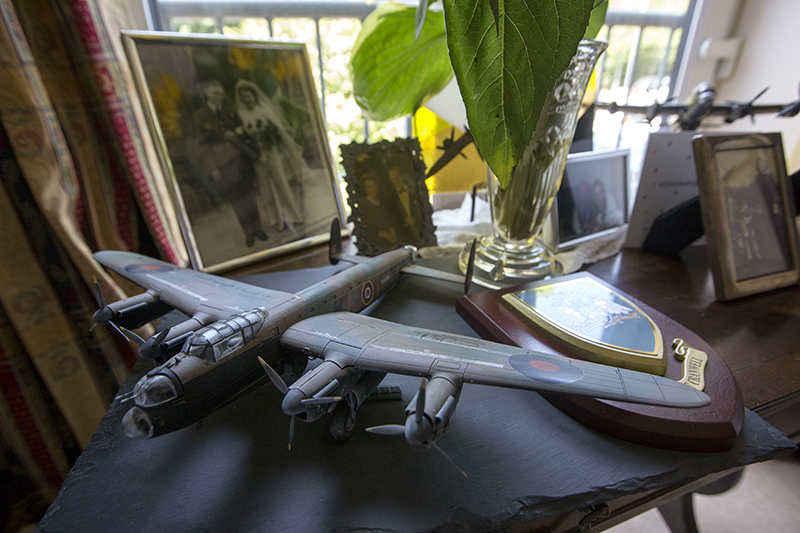
Not being above a bit of ingenuity himself, Oliver suggested that it would be a real feather in my journalistic cap if I could obtain an interview with Johnny – awarded an MBE in The Queen’s birthday honours this year – and, when I was successful, in the best tradition of the RAF, he volunteered to accompany me on my mission.
In fact, he more or less assumed command, relegating me to transport and supplies, while he took on intelligence and what amounted to – given the number of questions he proposed to ask – interrogation.
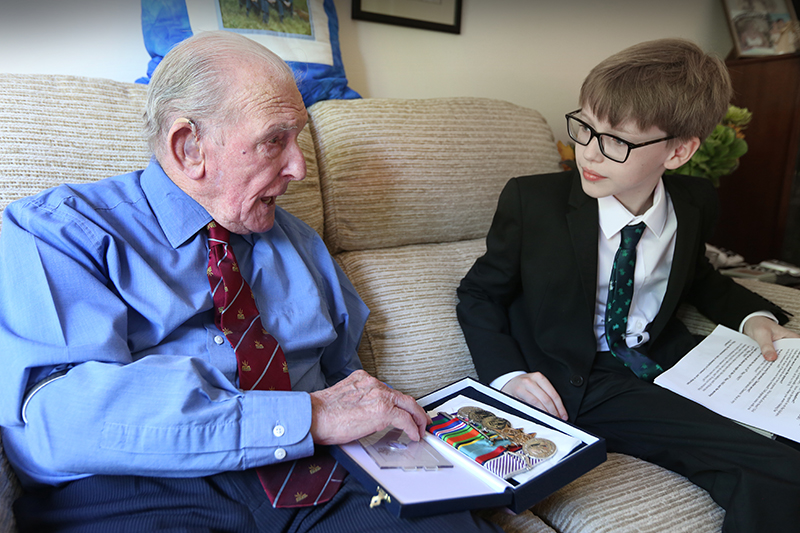
Even now, most British schoolboys know all about the Dambusters’ raid. They will be aware of its objective – to destroy three of Germany’s most vital dams and thus slow down the country’s weapons production – and will understand how impossible this appeared to be until Barnes Wallis came up with the bouncing bomb that would skip across the surface of the water before hitting the dam wall, sinking and detonating. They will have heard of the operation’s leader, Wing Commander Guy Gibson, and the intensive training required to have any hope of getting the bombers safely to the Ruhr and Eder valleys and back.
Although Oliver was hoping to learn about a wide range of subjects, from the use of carrier pigeons (to be released with messages tied to their legs, should a plane be downed) to the practical jokes played by the Squadron Leader during the war (was it true he bombed the Italians with rice pudding?), his overriding desire was to hear about the events of May 16 and 17, 1943.
Exquisite houses, the beauty of Nature, and how to get the most from your life, straight to your inbox.
"The operation came alive to such an extent that I began to feel I’d lived through it myself"
However, it’s one thing to know the facts and quite another to hear a first-hand account. Johnny was just 21 when he agreed to join the newly formed squadron for a secret, one-off mission. He had already participated in 30 operations, either as a gunner or as a bomb aimer.
As he told us about the excitement of low-level, night flying, his relationship with the other crew members, the briefings, how they had to switch planes at the last minute owing to a technical fault, the journey across Europe, being shot at, the smells, the noise, the cold, the nine dummy runs before he was able to say ‘bombs away’ and 1,000 other tiny details, the operation came alive to such an extent that I began to feel I’d lived through it myself. Johnny may be 95, but he’s an extra-ordinary raconteur.
Not that he confined himself to storytelling. He analysed the raid from the German and British perspectives, criticised the revisionists who, he pointed out, were not there and considered the moral aspects of having to kill civilians. He spoke with admiration of Group Captain Leonard Cheshire, who later took over 617 Squadron, and how he’d warned the workers in enemy factories that they were about to be bombed so they could escape.
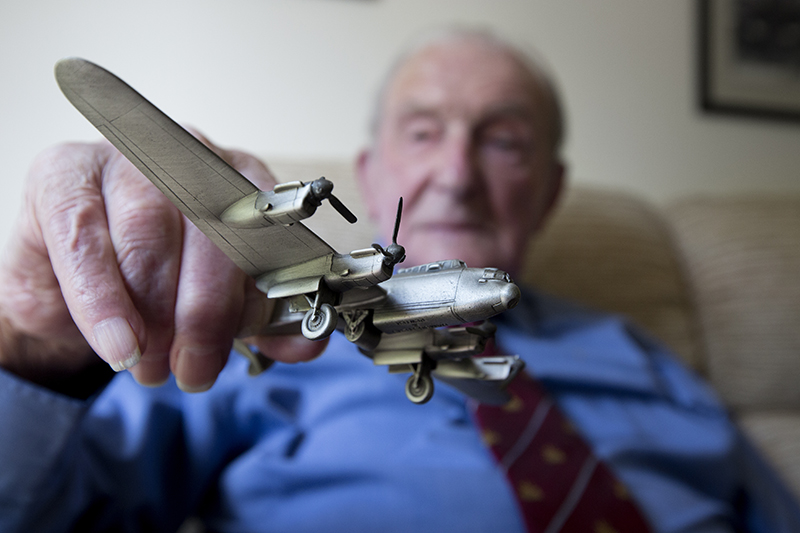
He discussed personal sacrifice, fear (he was more worried about letting his crew down than about the Nazis), the lessons to be learned from the war and whether subsequent generations understood what sacrifices had been made on their behalf. He expressed great faith in today’s youth, who, if need be, he felt, would prove themselves every bit as capable.
Johnny’s achievements during the war were such that, had he done nothing else of note during his long life, he would still be worthy of adulation. However, it is the years before 1940, when he volunteered for the RAF, and after 1962, when he resigned his commission, that I found the most fascinating.
The youngest of six children, he was born in Lincolnshire in 1921. His father, distant and irascible, was the foreman on a small farm – the family was extremely poor. Shortly before Johnny’s third birthday, his mother died and, after that, he was raised by his older sister, Lena. When he was 11, he got a place at the Lord Wandsworth Agricultural College and barely seems to have gone home again.
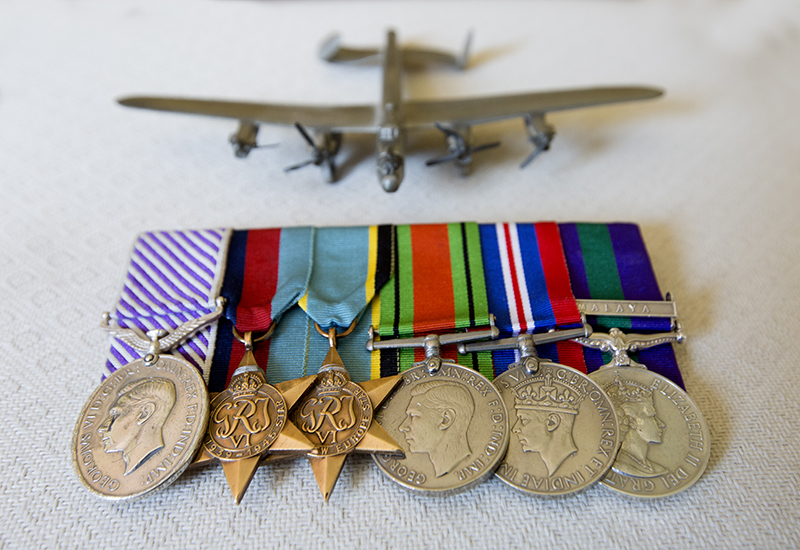
He was working as an assistant park keeper in Basingstoke when war was declared – at that time, his ambition was to be head park keeper in one of the great London parks and to start his own family.
He returned to the subject of family repeatedly. When he met his future wife, Gwyn, in 1941, it was his first introduction to a close-knit, affectionate family environment. She and their children became the entire focus of his life; he stopped operational flying just before his first child was born in 1944 and gave up any hope of promotion a decade later by refusing a posting that would have meant constantly moving.
In 1962, he re-trained as a teacher, progressing to adult education, first at Rampton Hospital and then at Balderton Hospital, where he was instrumental in transferring mentalhealth patients into sheltered, community housing long before it became commonplace.
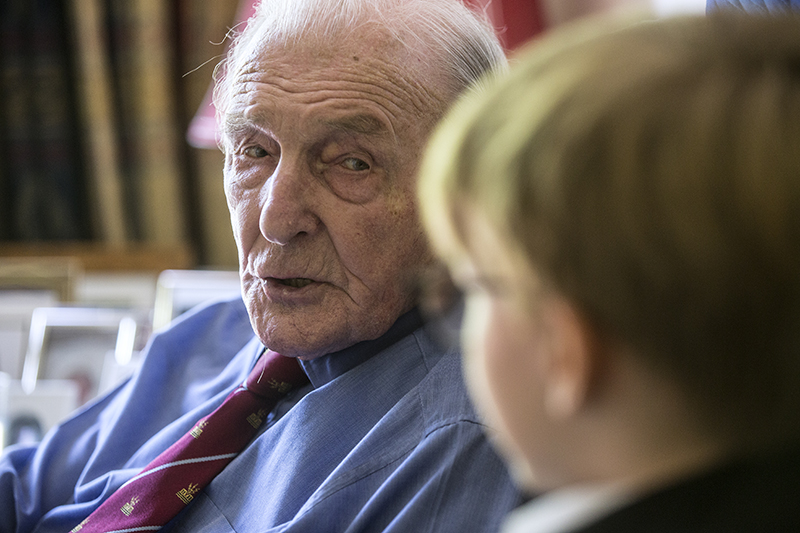
I was born 14 years after the war ended and I was raised to be grateful. Grateful for the food on the table and the roof over our heads, for the fact that we lived in a free country and grateful to the men and women who had risked and, only too often, lost their lives on our behalf.
To my surprise, I have, without realising it, passed some of that feeling to Oliver, because the first thing he said when we eventually took our leave was how much we owed to Johnny and to the others who weren’t as fortunate. Lest we forget.
Jonathan & Oliver Self
Country Life is unlike any other magazine: the only glossy weekly on the newsstand and the only magazine that has been guest-edited by His Majesty The King not once, but twice. It is a celebration of modern rural life and all its diverse joys and pleasures — that was first published in Queen Victoria's Diamond Jubilee year. Our eclectic mixture of witty and informative content — from the most up-to-date property news and commentary and a coveted glimpse inside some of the UK's best houses and gardens, to gardening, the arts and interior design, written by experts in their field — still cannot be found in print or online, anywhere else.
